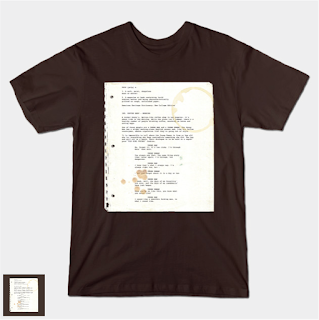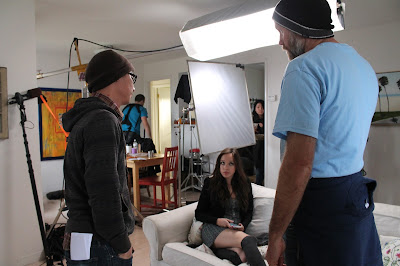First off, there are different reasons that you will be asked to write a Director's Statement, and each of them will have different needs and requirements. The main two circumstances, generally, will be before the movie is made (development) and after the film is made (distribution).
Before the film is made, your purpose is to describe why the film should actually be made. You may write your Director's Statement for a grant application or maybe in a business plan. Your purpose is to get funded, or maybe to get a job making the film. You're selling your vision of the film - and you're making people see that your vision is the only way the film should be told.
Andrew Mack, editor for Screen Anarchy, says: "A director's statement is about what inspires someone to make a movie and what they desire to convey with their audience... The director wants to, in this statement, express their inspirations and ambitions - generate some excitement about this potential project."
Development
In development the key things you should consider including are:
• The genesis of the project (where the idea came from; its circumstances and history)
• Why the project is important (will it have social impact; will it make people laugh)
• Why you're the only one who can tell this story (what do you bring to the table that is unique and especially pertinent to this project)
• Your cinematic inspiration and influences (this helps the reader see the vision of the film)
• Visual and technical approaches you intend to take that will make the film unique and successful
• Your hopes for the audience's response (what will the audience get out of it)
You don't have to include all of these things, but they all should be alluded to in some way. Remember, you're a storyteller, so this is just another form of storytelling. Make it entertaining. Bring the reader along with you.
Marketing
For marketing (once the film is done), you will include a Director's Statement in application material for festivals, or in press material for the film's marketing. It's important to remember that no one will choose to program your movie in a festival, review it in their paper, or distribute it because of your winning Director's Statement. If you're film doesn't appeal to them, they're not going to change your mind because of your Statement. However, once they decide to program/review/distribute your film they will look at the Director's Statement to help them market it. From a journalist's/film critic's stand point, a good Director's Statement saves them the hassle of having to interview you.
In marketing the key things you should consider including are:
• The genesis of the project
• Why the project is important
• Why you're the only one who could have told this story
• Your cinematic inspiration and influences
• Production and Post-production discoveries (what happened during the process of making the film that shaped the film's final state)
• Your hopes for the audience's response
Thus, the two types of Director's Statements are very similar, except in one you're discussing what you hope will happen, and in the other you're explaining what did happen.
Remember: Your Director's Statement needs to exist outside of the film they're discussing, in other words, don't assume the reader will have already seen your film, or even has any intention of seeing it. It needs to make them want to see it, just like a development Director's Statement should make them want to see it made.
Do people read them? My film Superpowerless was recently reviewed by Variety. I know the reviewer had come to the screening (at my invitation), and had given me a smile on his way out during the credits, but he had also told me that he would see about thirty films at the festival and review around five, so I wasn't holding my breath... at all. When the review came out he concluded it with some information that he would have got only by reading the Director's Statement included in the press material.
My friend Maggie Mackay, executive director of Vidiots, says "When I was programming festivals, Director Statements and other supplemental materials didn't play into my programming process. Once we programmed a film, those materials were useful, but they didn't have any influence on my selection process. On the other hand, when I was the Director of Nominations at the Spirit Awards, and we required Director Statements for the grant awards, not only did they get read, but they were a HUGE part of the submission. My biggest recommendation to filmmakers submitting required statements is that they really read and stick to the instructions from each organization or festival."
Length
You will be given instructions in regards to length. Do not go over, and do not be too brief. Make it quick and easy to read no matter its assigned length. This is not the time to write a scholarly paper.
Attitude
This is always the same, no matter what aspect of your filmmaking career you're in; or no matter what stage of the filmmaking process you're in:
• Be grateful / humble (don't come off as pompous or like God's-Gift to the filmmaking world)
• Take your movie seriously, but don't take yourself seriously (you've made an important, awesome movie, but you're grateful for the opportunity and for all the people who helped you along the way).
These two attitudes, which are intertwined, will help you in all stages of your career. And, by the way, if you are sincere about these two attitudes, and apply them to the rest of your life, you'll be happier.













